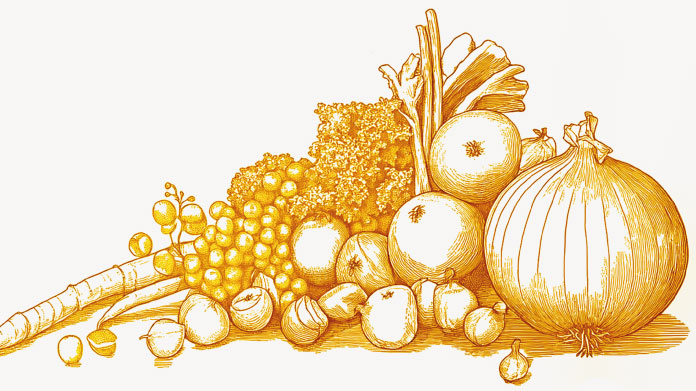
What exactly is Candida albicans?
Candida albicans is a yeast-type fungus which is part of the Candida genus. Of the 200 species in this genus, Candida albicans is the best-known strain. Naturally present in the body, this strain is primarily found in the digestive and genital mucosa. It may also be present in the skin, though this is less common. It is a commensal fungus which means it is non-pathogenic. Some studies suggest it may even play a beneficial role in the body. However, it can equally ‘turn against us’ and become pathogenic. As it grows, it can lead to fungal infections – commonly referred to as the development of candidiasis.
When is Candida albicans considered a danger to health?
Though it may remain innocuous, Candida albicans can also multiply in the body and threaten our health. Certain conditions are particularly conducive to the development of an infection, such as changes in the body’s pH, hydration levels and nutrient concentrations. Candidiasis may also be caused by changes in the gut microbiota – the collective name for the thousands of microorganisms with very different effects that exist in the gut. A number of studies have shown that an imbalance in our gut microbiota may be responsible for health problems and diseases.
Who is at risk of candidiasis?
Candida albicans is present in most people. If conditions in the body become favourable, it can grow and lead to candidiasis. While anyone can be affected, some people are at particular risk of developing a fungal infection from Candida albicans They include those with a vulnerable immune system, such as new-born babies, the elderly, those taking broad-spectrum antibiotics and immune-suppressed individuals. The latter includes patients on chemotherapy, people with AIDS and those who have undergone an organ transplant.
What are the symptoms of aCandida albicans infection?
Whitish patches in the mouth, skin redness and itching, inflammation in the genital area … these are all symptoms that may indicate the presence of candidiasis. This fungal infection can develop on the skin or in many other parts of the body such as the mouth, oesophagus, intestines or vagina. Symptoms can vary greatly, depending on the area affected.
What are the different forms of candidiasis?
As you’re probably aware, candidiasis can develop in various ways. Usually, it remains very localised. It may start in the skin, in which case the infection tends to occur in sweaty areas such as the armpits, or in skin that is grazed or burned. Candidiasis may also occur in mucosa such as those of the oesophagus, stomach, colon, oral cavity or genital tract. Vulvo-vaginal candidiasis is a common form of fungal infection; indeed it is one of the most frequently-suffered gynaecological infections. Usually occurring during pregnancy or after the menopause, its symptoms are itching and a severe burning sensation in the vulva.
Is there a risk of complications from Candida albicans?
In most cases, superficial candidiasis presents no risk to health. Nonetheless, it can become serious if it infiltrates the circulation. This is referred to as systemic candidiasis or candidaemia. In such instances, several areas of the body become infected. The patient develops a fever and is generally unwell. These symptoms are difficult to diagnose which can delay and complicate control of the condition. A worrying increase in candidiasis cases has been observed in recent years. Two reasons have been suggested for this: a primary infection and hospital-acquired contamination.
How can you prevent infection by Candida albicans?
While a healthy diet and good personal hygiene are key to preventing candidiasis, other solutions may also prove beneficial. Probiotics are microorganisms that help reduce some of the conditions conducive to the development of Candida albicans. Probiotics of the strain Saccharomyces boulardii, for example, help to prevent imbalances in gut microbiota.
What should you do if you develop candidiasis?
Topical and oral anti-fungal treatments have been developed to fight the infections caused by Candida albicans. These treatments often use synthetic molecules, but natural and effective active principles are also available to treat candidiasis. One such product, available without a prescription, is caprylic acid which has effective anti-fungal properties. This compound is naturally present in breast milk as well as in vegetable oils such as coconut oil. Other dietary supplements can also help eliminate candidiasis such as oregano oil which offers broad-spectrum anti-infection activity.
How can you prevent recurrent infections?
Once you have had candidiasis, it is quite likely to recur which is why, as previously mentioned, it is advisable to prevent the growth of Candida albicans. You can also help protect your body from candidiasis by taking advantage of the immune-stimulant effects of shiitake mushroom or of lactoferrin, a glycoprotein with anti-microbial activity.
17 Days
Reliable delivery
Reliable delivery. Good product.
Viva
31 Days
Great service
Great service
cl
32 Days
Received product promptly and its early…
Received product promptly and its early days but seems to have improved my daughters alertness.
Anandi
43 Days
Amazing
Amazing, great product!
ALEX Sinclair
46 Days
Good products and Swift handling
Good products and Swift handling
Trusted
51 Days
I trust the company's product
I trust the company's products, the quality is trustworthy and the speed of delivery is also appreciated.
NAJIB Malaah
51 Days
Good job.
This company is serious when it comes to serving it's customers. They are fast to send out the orders. Their site is great and easy. Also, they treat their return customers with great deals and discounts. Keep up the good work.
ABDULQADER Jehad
52 Days
I know frech ( level 3 of 6) and can…
I know frech ( level 3 of 6) and can read your messages, but since order are official documents I'd like to have this in english. Merci Ursula Mathes
Ursula Mathes
56 Days
I worried the delivery.
Box was intact, content correct but delivery time was 12 days. I started to worry!
VIITANEN Esa
58 Days
Supply of Chondroitin 6-sulphate
The company has provided the required product efficiently with no complications.
OldBear
60 Days
Supersmart sell a lot of interesting…
Supersmart sell a lot of interesting stuff. More than jut the usual vitamins though they do all those as well. Ordering pretty straightforward - you may need to try a couple of times to get the offers to apply but they do work. I queried something and had a fairly quick sensible reply. Postage takes a couple if days but you do get good progress information. Very well packed. Bought from Supersmart a few times and will do so again.
AT Griffin
14 Days
Excellent
On m'a mis bien.
cliente
16 Days
qualité des produits et services
qualité des produits et services
denis riegel
18 Days
Nehme das Produkt noch zu kurz um eine…
Nehme das Produkt noch zu kurz um eine Bewertung abgeben zu können
Ermelinde
18 Days
Très satisfait
J'apprécie la facilité de navigation sur le site, le suivi des commandes, et bien sûr, la qualité des compléments alimentaires.
LE COUR SERGE



